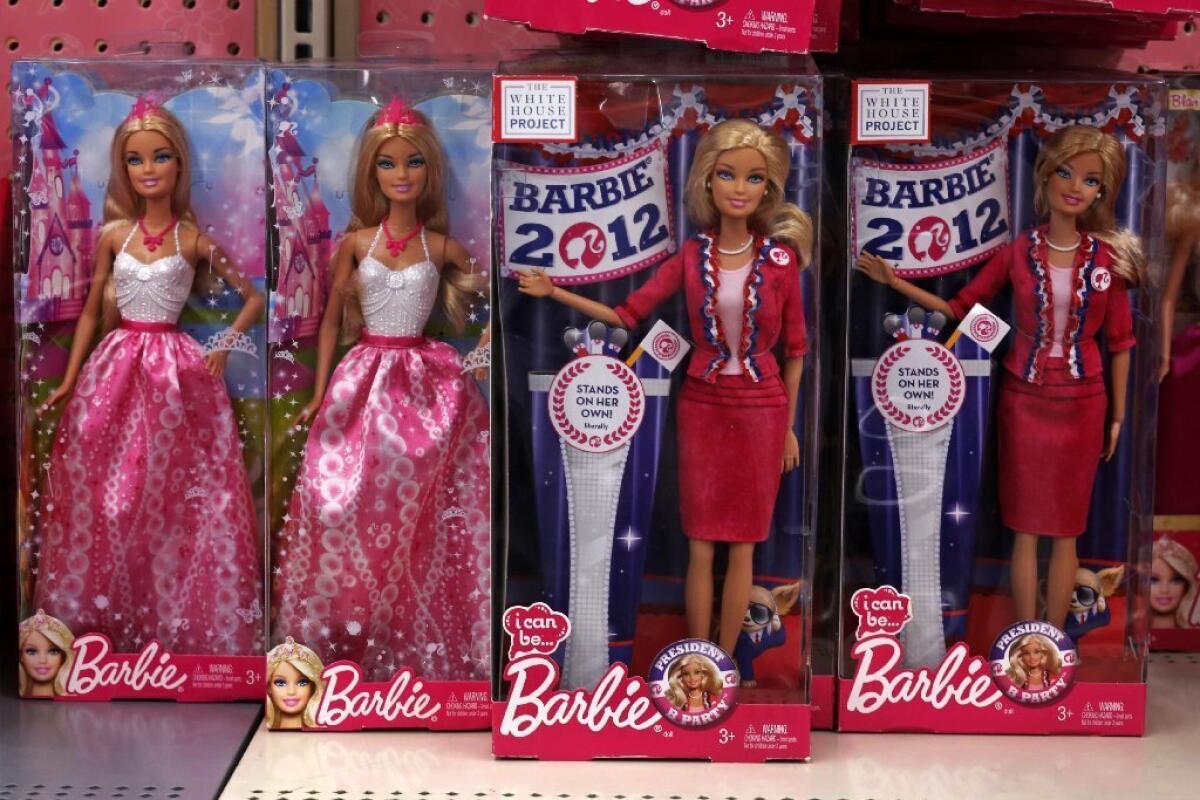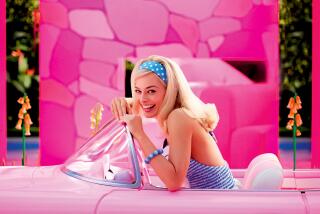Dolled up or working, Barbie crushes girls’ career dreams, study says

- Share via
In a psychology lab at Oregon State University, 37 girls ages 4 to 7 have finally demonstrated what feminists have long warned: that playing with Barbie dolls drives home cultural stereotypes about a woman’s place and suppresses a little girl’s career ambitions. But here’s an unexpected, though preliminary, finding: Playing with Mrs. Potato Head, by contrast, appears to have the effect of attending a “Lean In” circle on little girls. After spending just five minutes with Jane Potato-Head, girls believed they could grow up to do pretty much anything a boy could do.
This small but telling experiment, published Wednesday in the journal Sex Roles, probably will do little to stem sales of Mattel’s Barbie dolls, which at last count flew off store shelves the world over at a rate of two per second. But among equal-opportunity-conscious parents, it might spur a sales bump for Playskool’s (formerly Hasbro’s) Mrs. Potato Head, who, compared with Barbie, has a shape decidedly closer to that of most American women and apparently a lot more going on between her detachable ears.
And don’t be fooled by those career girl Barbies dressed up as doctors, astronauts, politicians and ocean explorers. The authors of the latest study report that whether girls played with “Doctor Barbie” -- decked out in a white coat and jeans with a sparkly applique -- or “Fashion Barbie,” dressed in a form-fitting mini-dress and high heels, they were likely to judge themselves capable of plying, on average, 1.5 fewer occupations than a boy could.
“Although the marketing slogan suggest that Barbie can ‘Be Anything,’ girls playing with Barbie appear to believe that there are more careers for boys than for themselves,” wrote authors and psychology professors Aurora M. Sherman of Oregon State University and Eileen L. Zurbriggen of UC Santa Cruz.
OK, Barbie’s preoccupation with fashion and her outlandish curves derange a little girl’s priorities, plant the seeds of poor body image and squelch her dreams that she can be anything -- I get that.
But Mrs. Potato Head busts gender stereotypes, invigorates a lass’ self-confidence and kindles her career aspirations? Huh?
Her name is Mrs. (definitely NOT Ms.) Potato Head, and I’m not sure what line of work she has ever plied. Just as Eve was said to have been created from the rib of Adam, Mrs. Potato Head appears to have been pretty much an afterthought to her spud-noggined husband. And who could forget the mildly misogynistic 2009 Super Bowl advertisement for Bridgestone tires in which she starred? In it, Mrs. Potato Head nags Mr. Potato Head to slow down as he speeds down a mountain road, and, to the delight of Mr. Potato Head, she loses her enormous detachable mouth when he swerves to avoid a herd of sheep.







